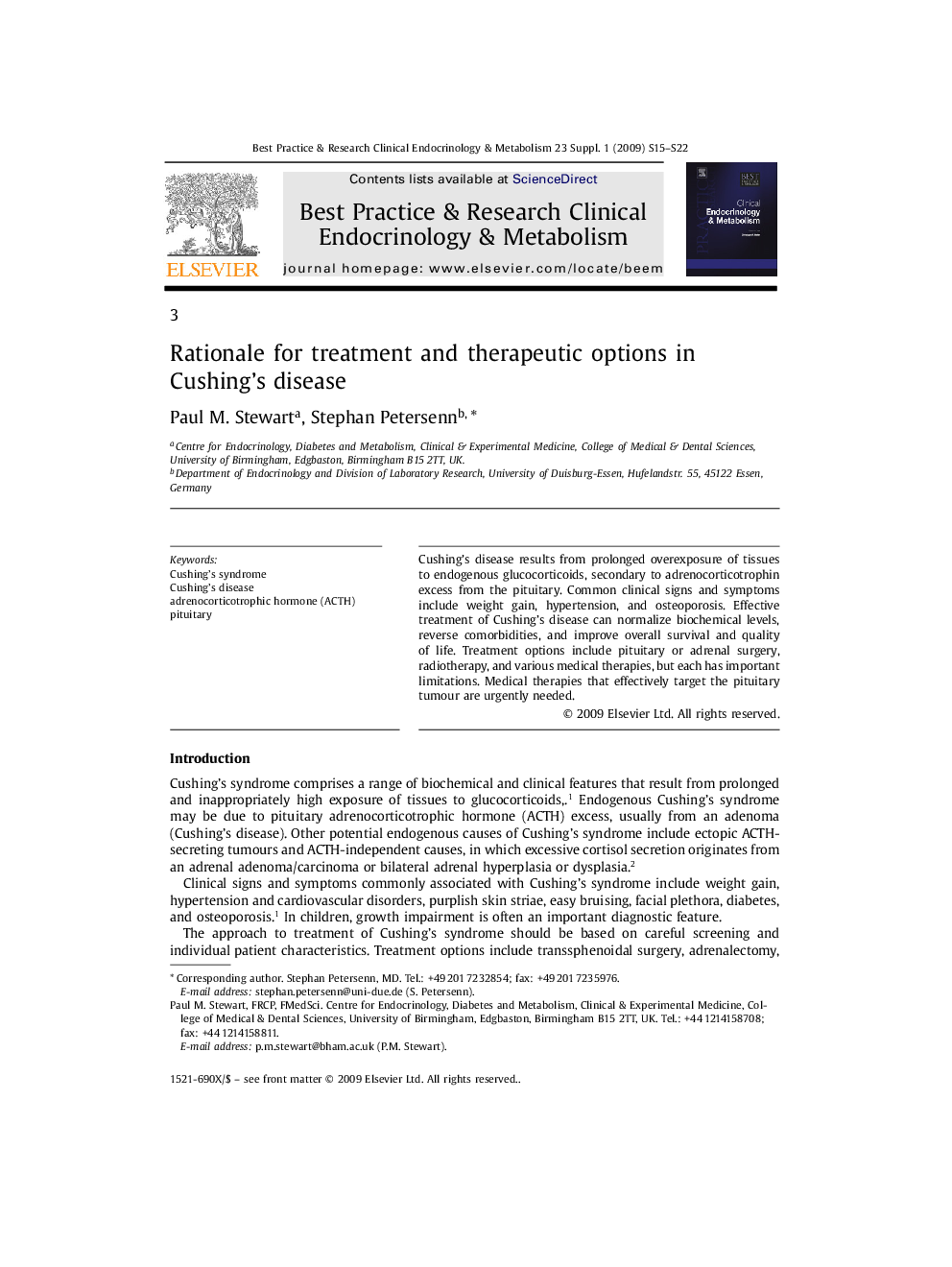| Article ID | Journal | Published Year | Pages | File Type |
|---|---|---|---|---|
| 2792242 | Best Practice & Research Clinical Endocrinology & Metabolism | 2009 | 8 Pages |
Abstract
Cushing's disease results from prolonged overexposure of tissues to endogenous glucocorticoids, secondary to adrenocorticotrophin excess from the pituitary. Common clinical signs and symptoms include weight gain, hypertension, and osteoporosis. Effective treatment of Cushing's disease can normalize biochemical levels, reverse comorbidities, and improve overall survival and quality of life. Treatment options include pituitary or adrenal surgery, radiotherapy, and various medical therapies, but each has important limitations. Medical therapies that effectively target the pituitary tumour are urgently needed.
Related Topics
Life Sciences
Biochemistry, Genetics and Molecular Biology
Endocrinology
Authors
Paul M. Stewart, Stephan Petersenn,
